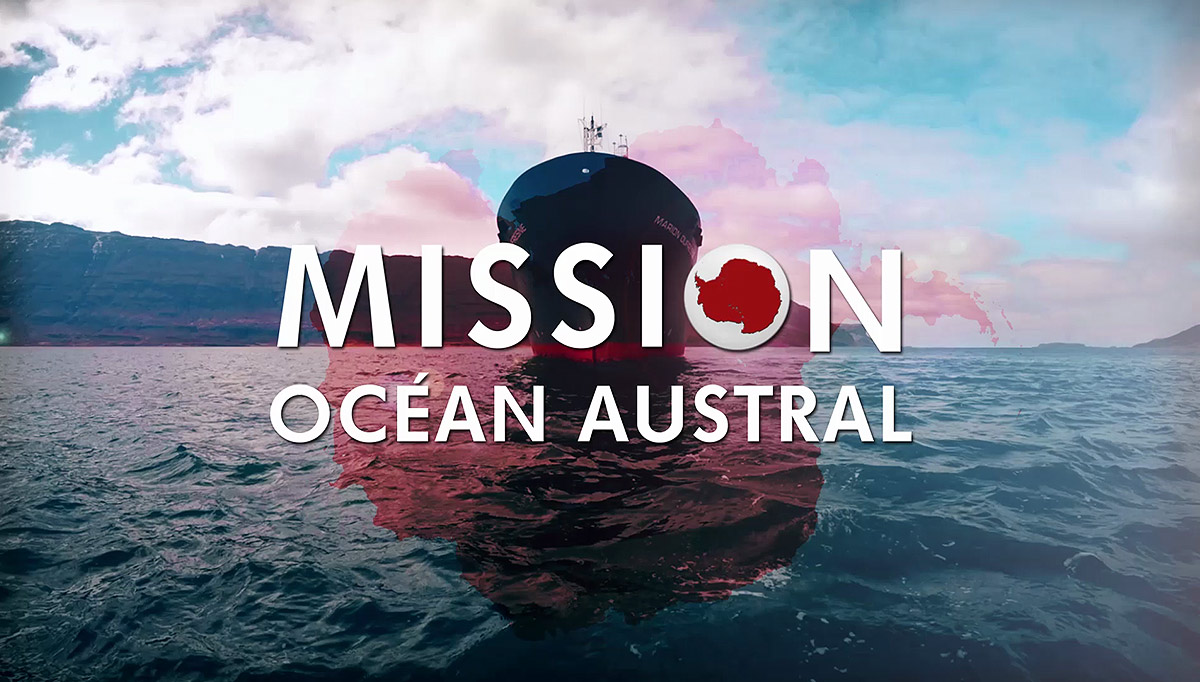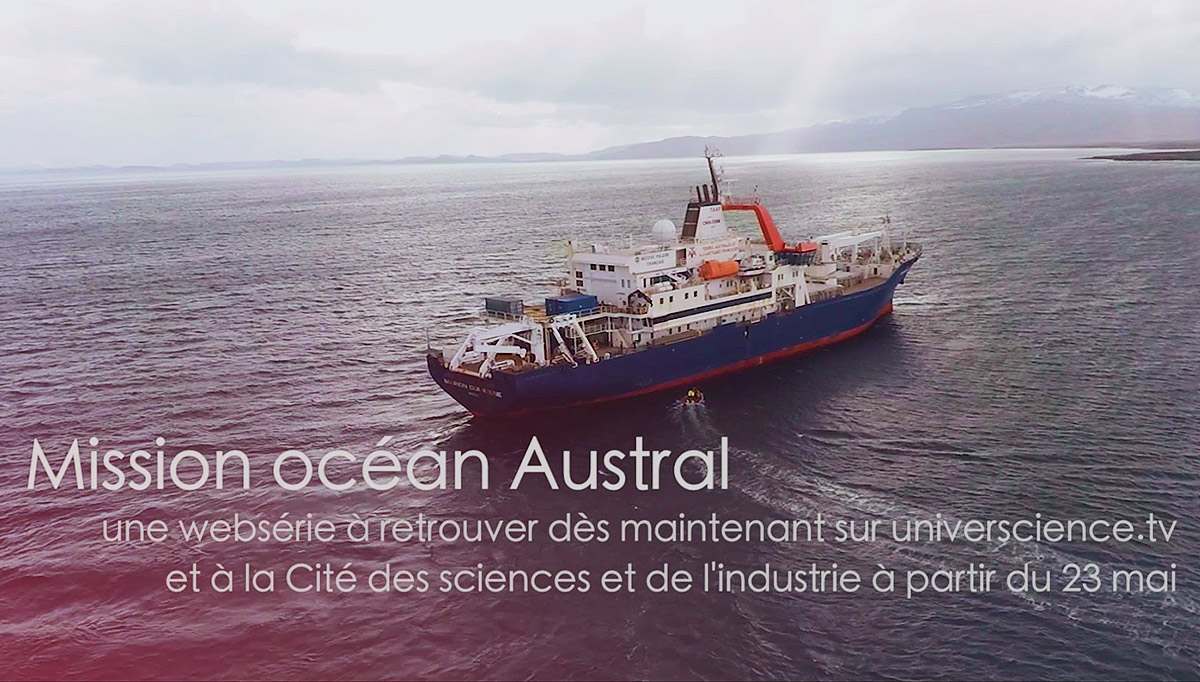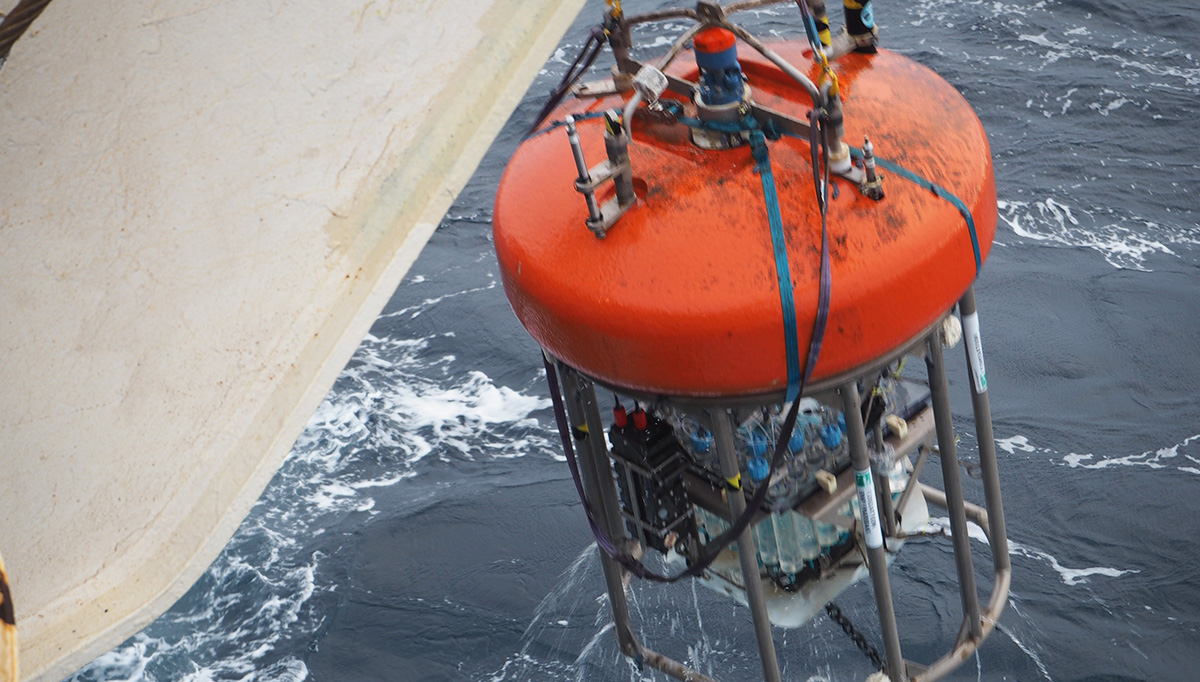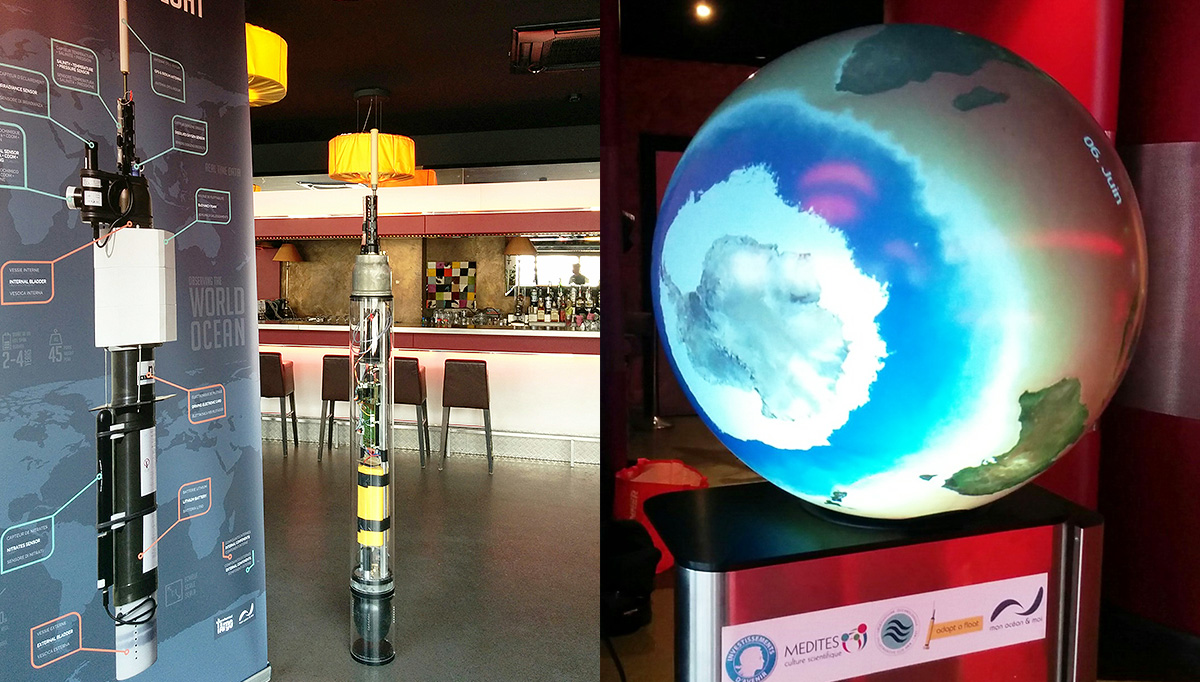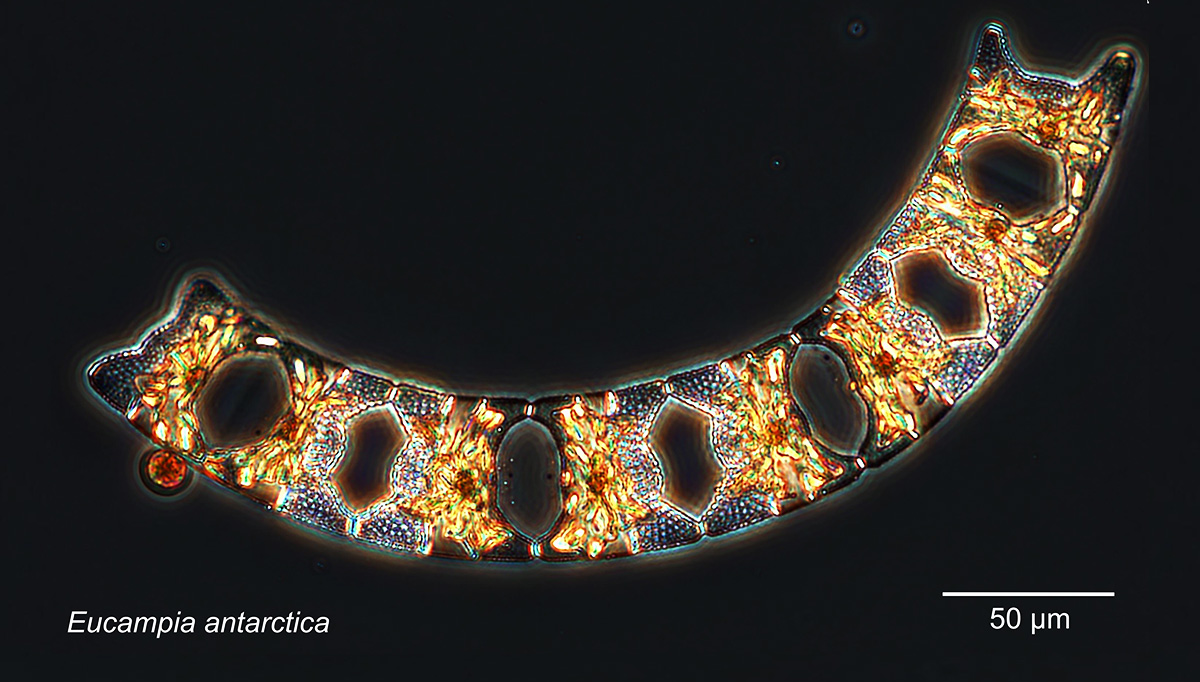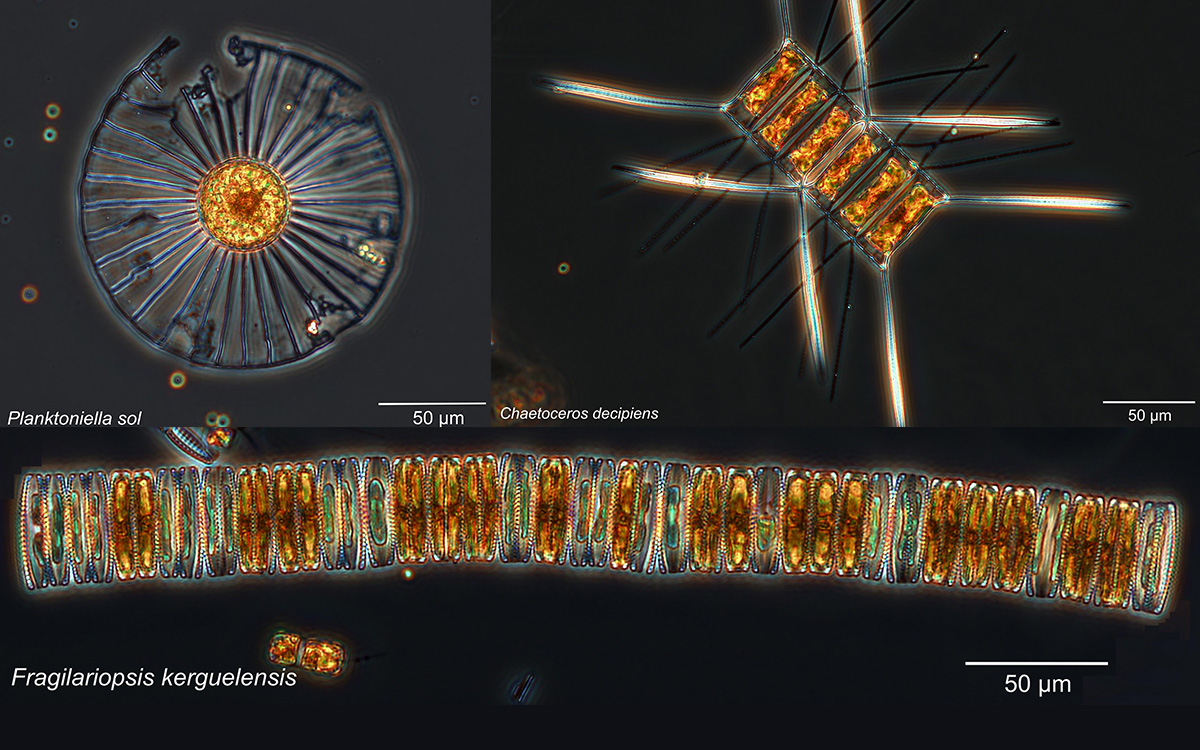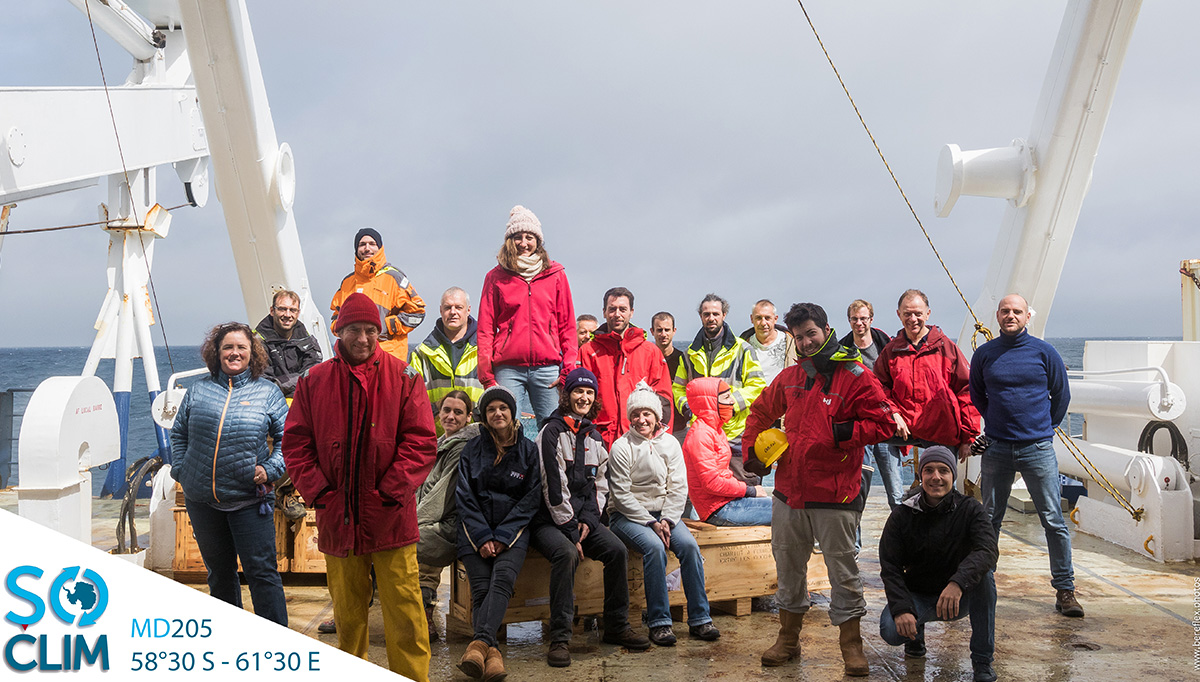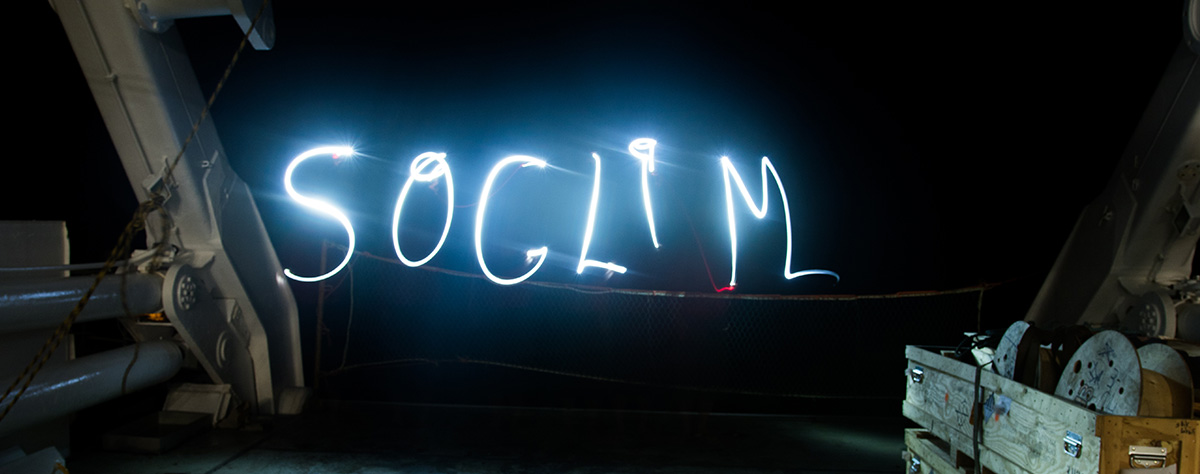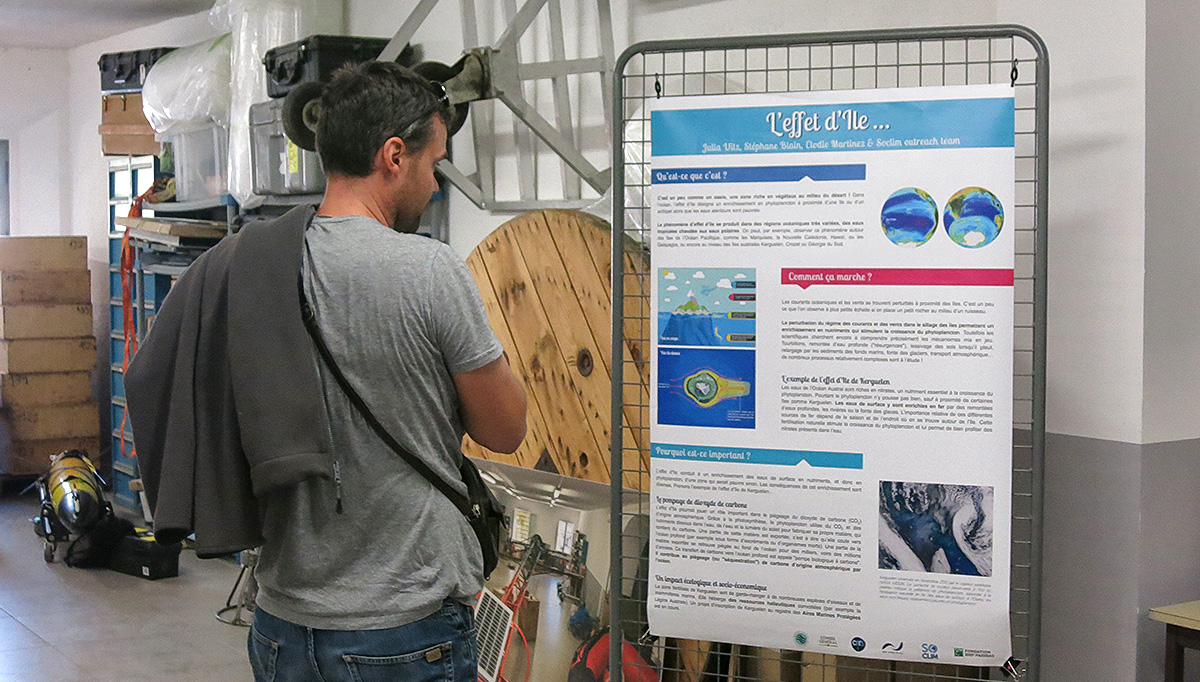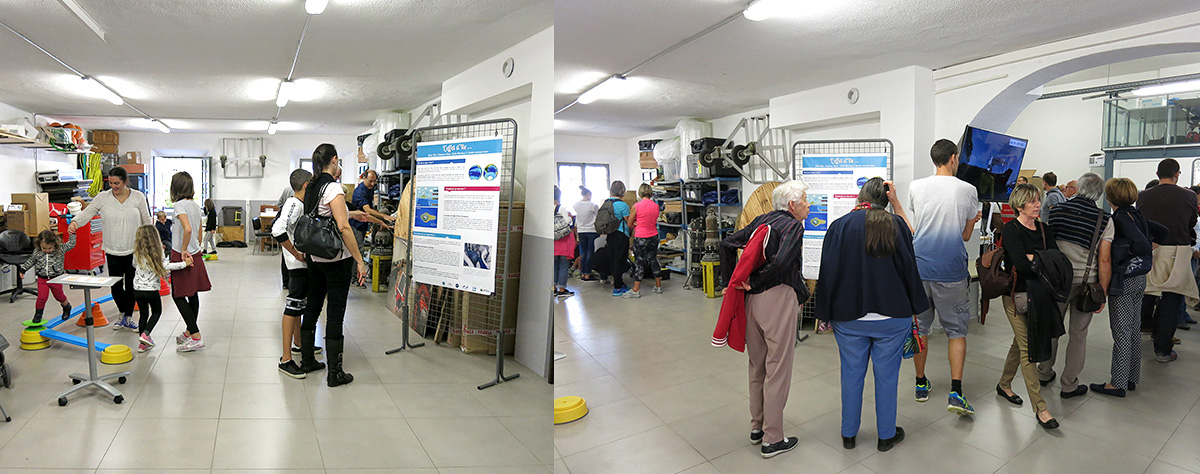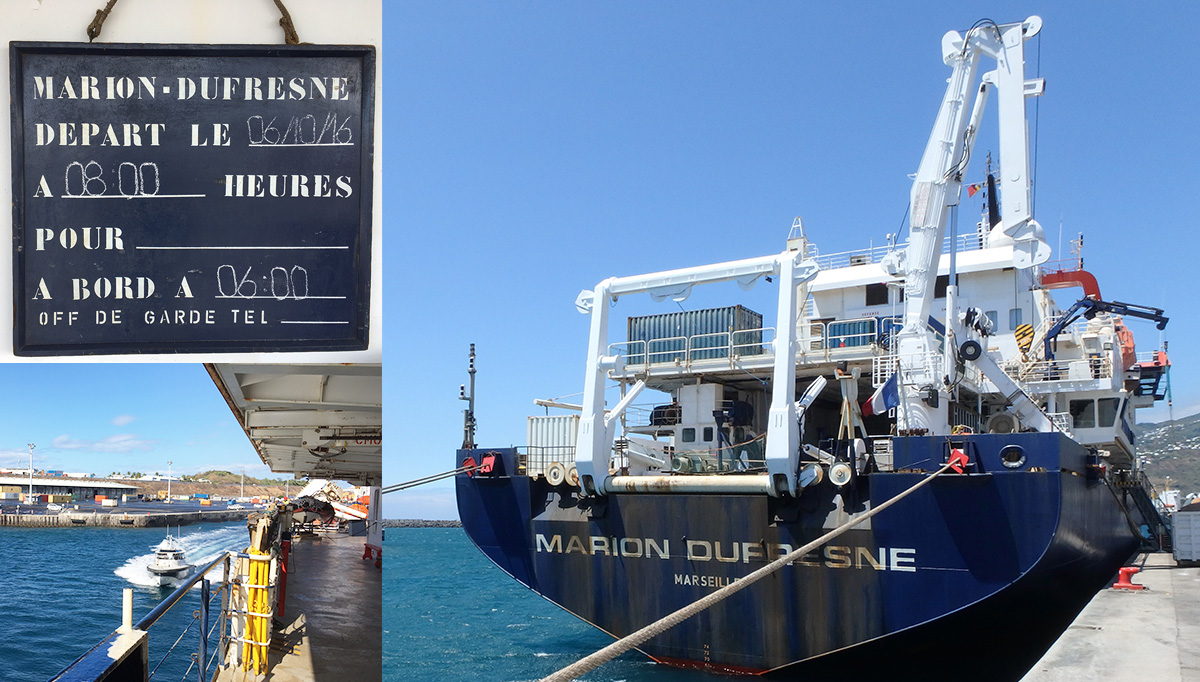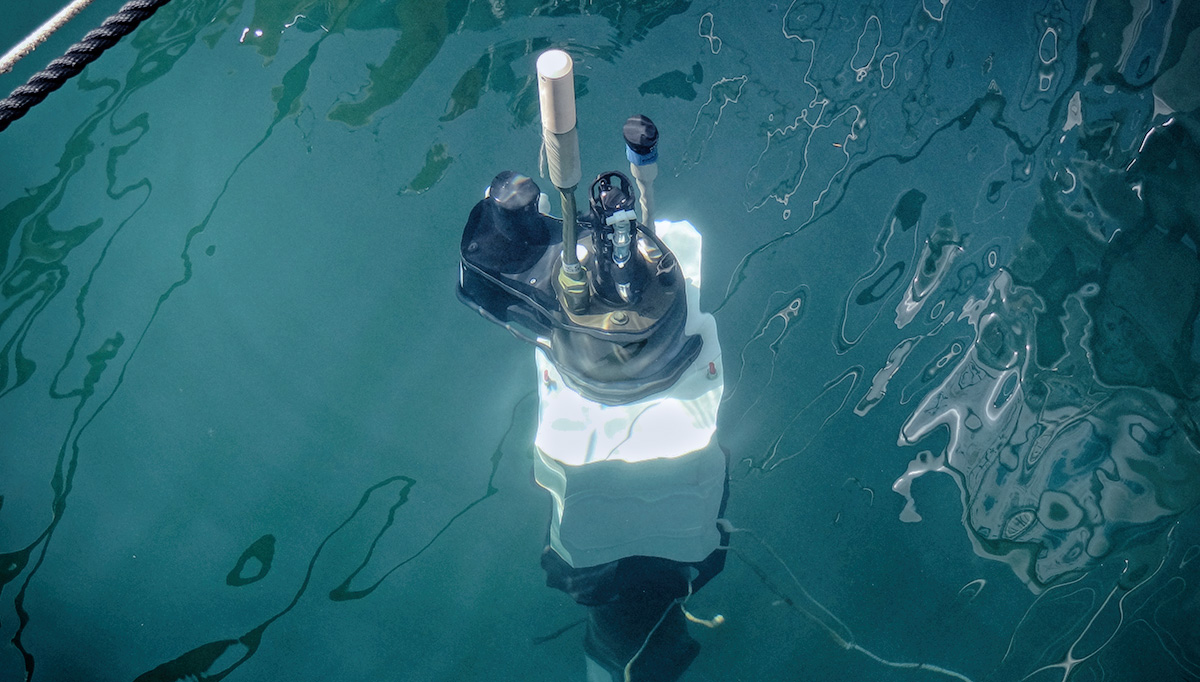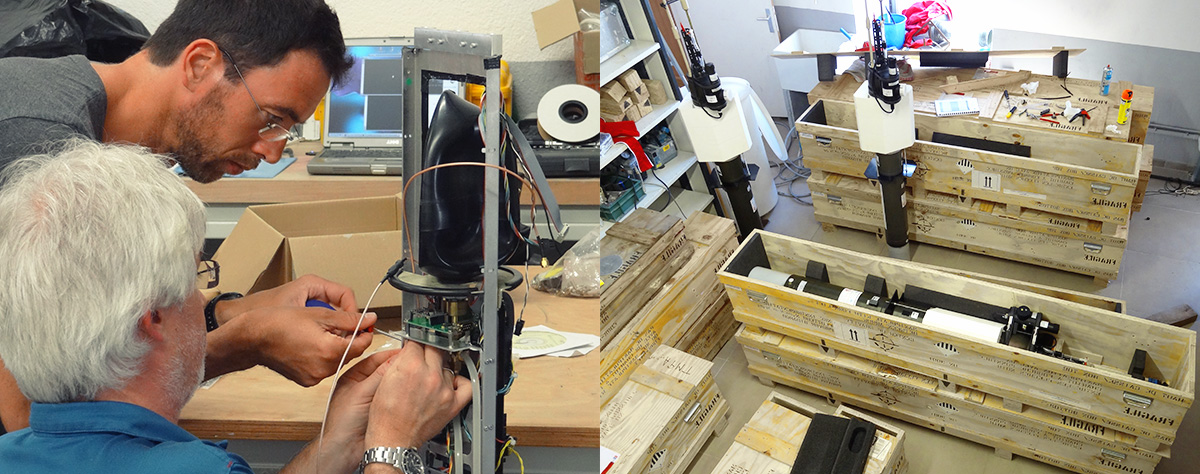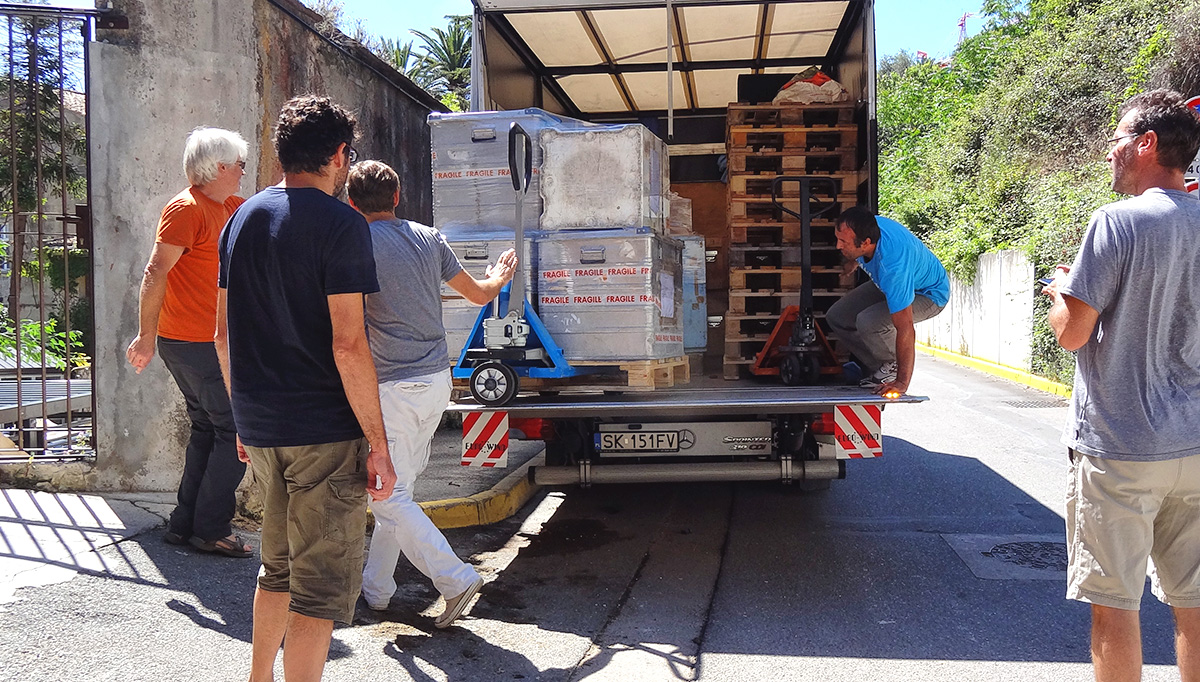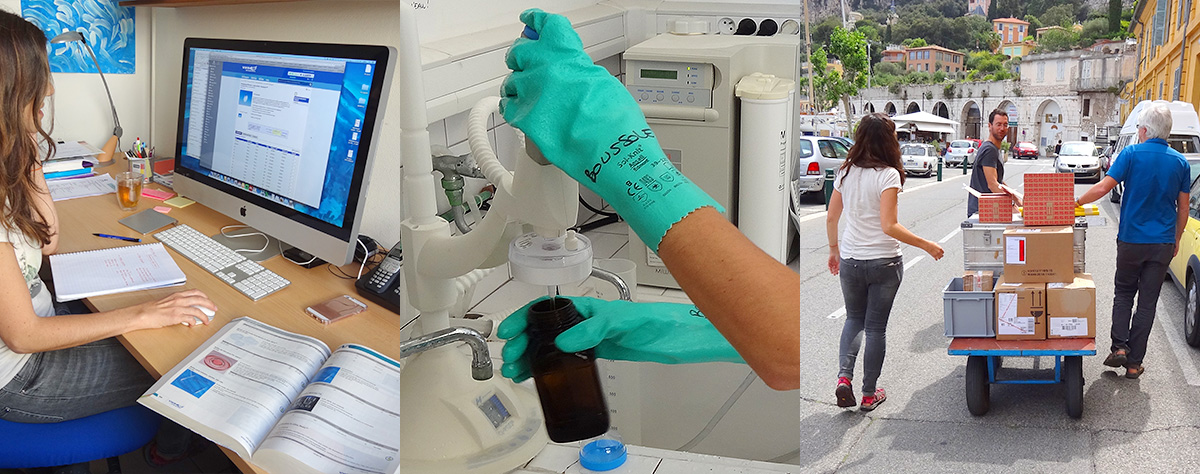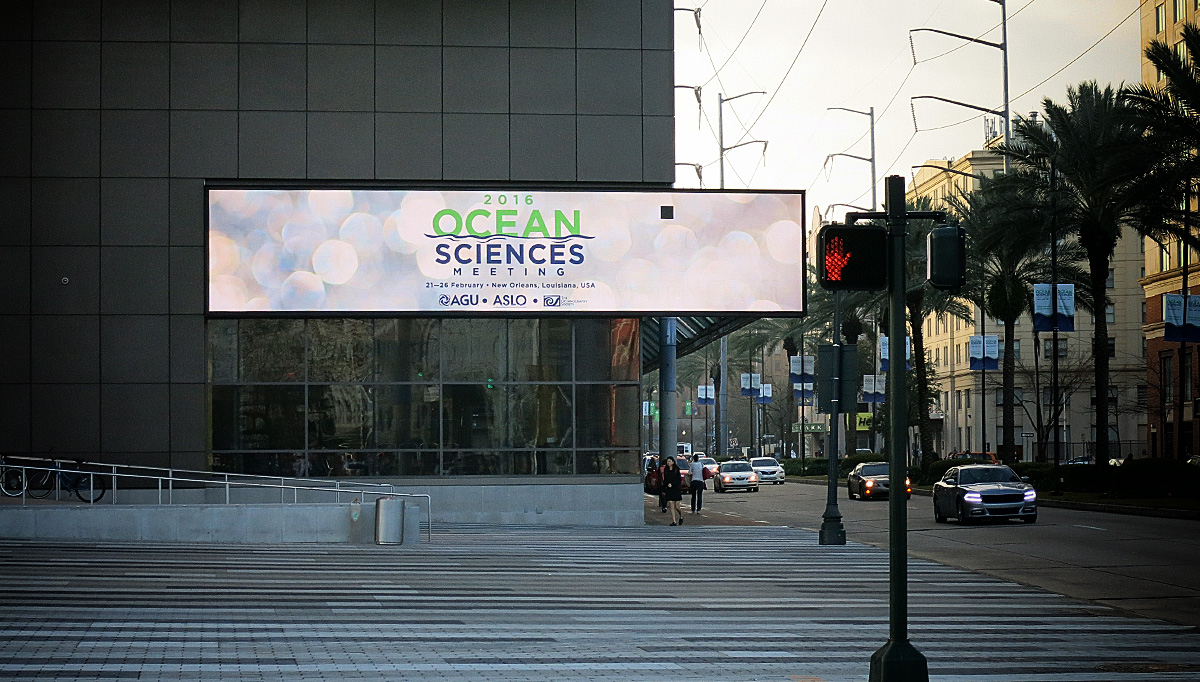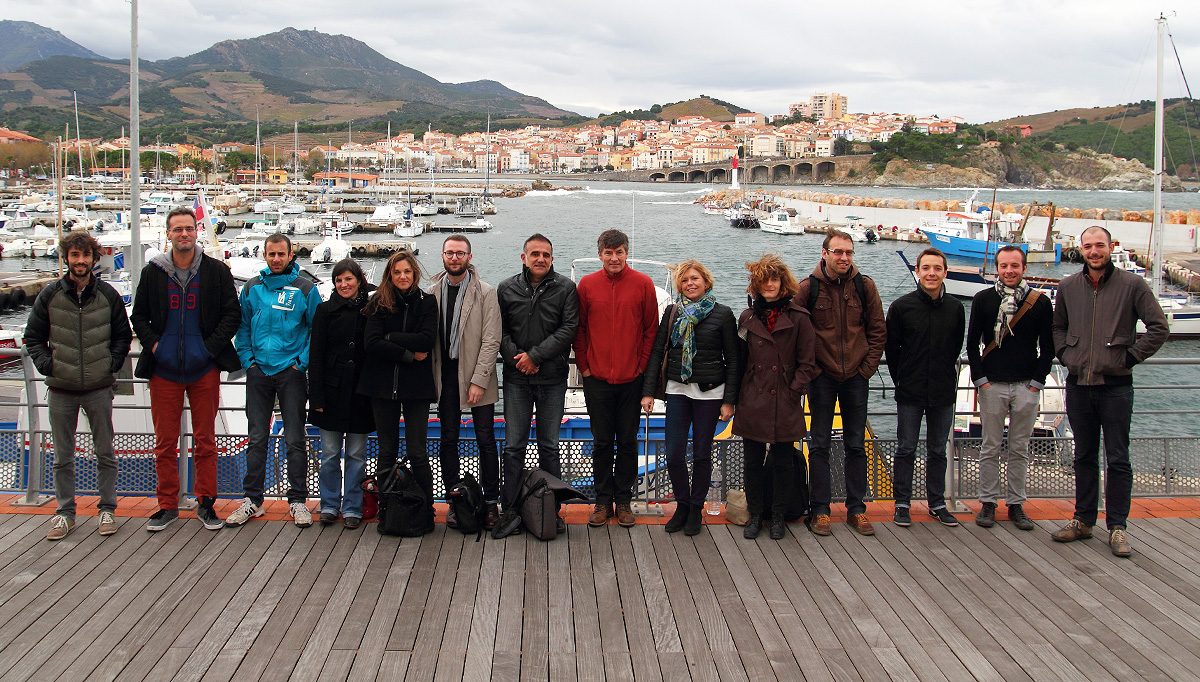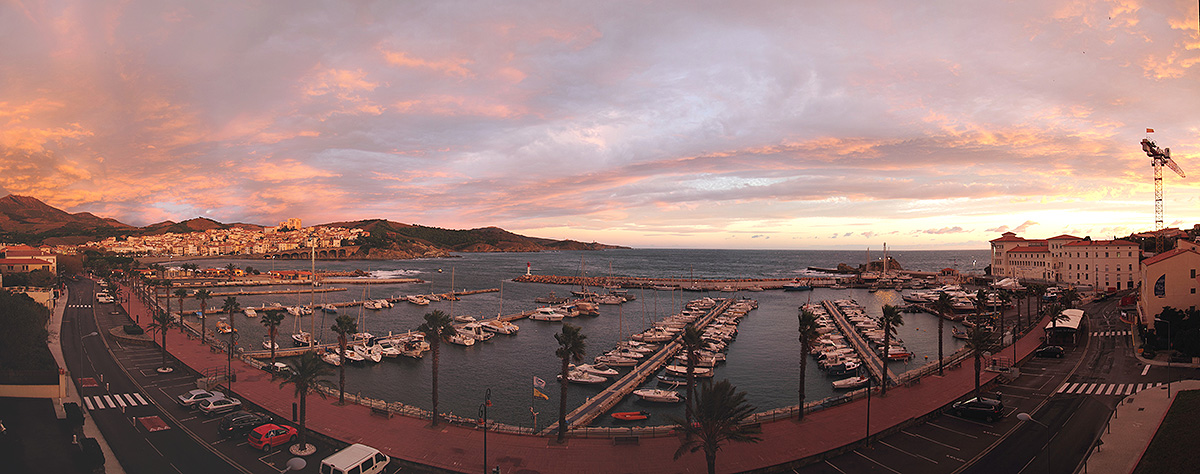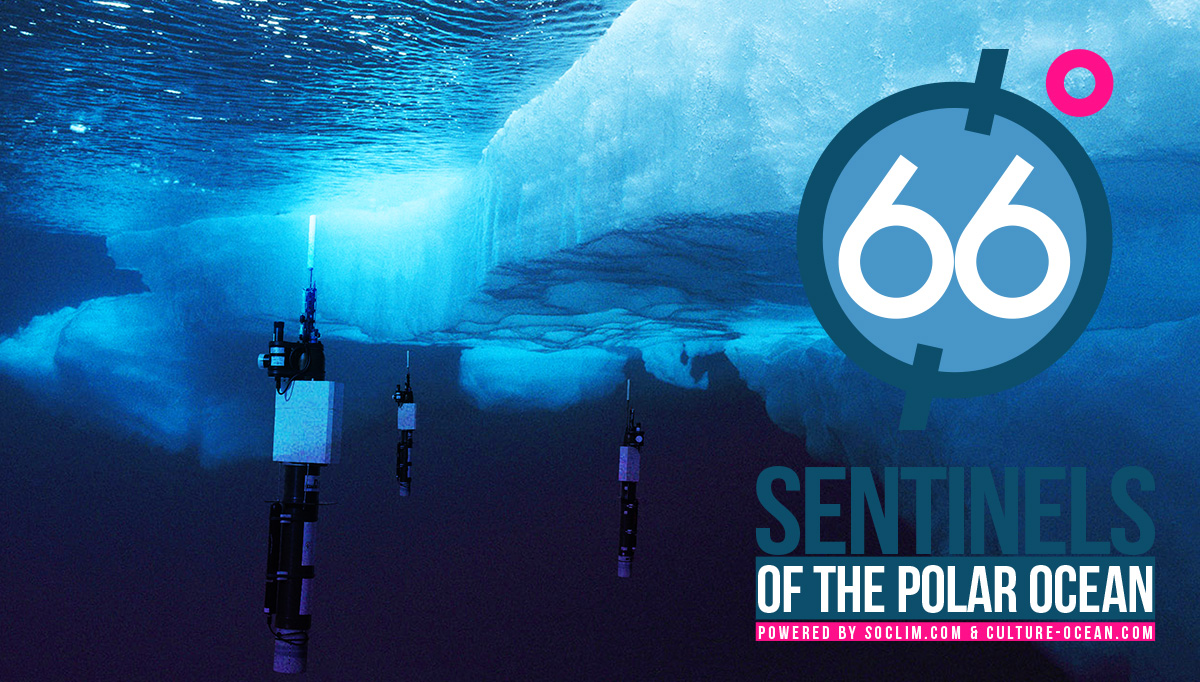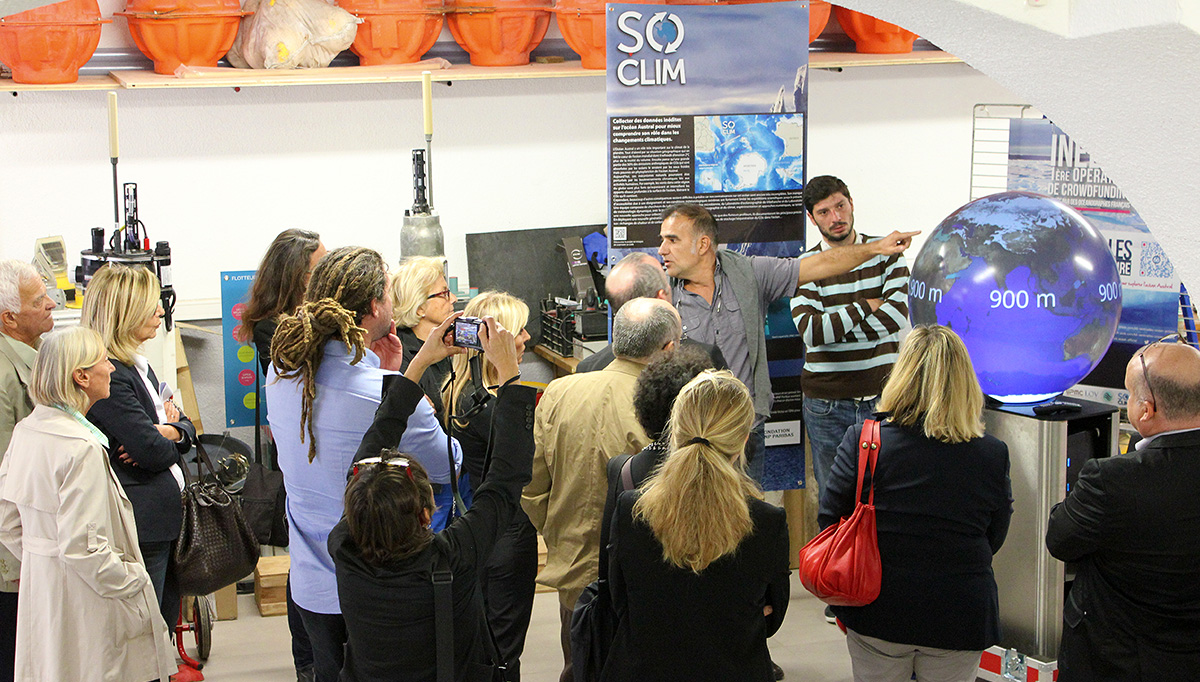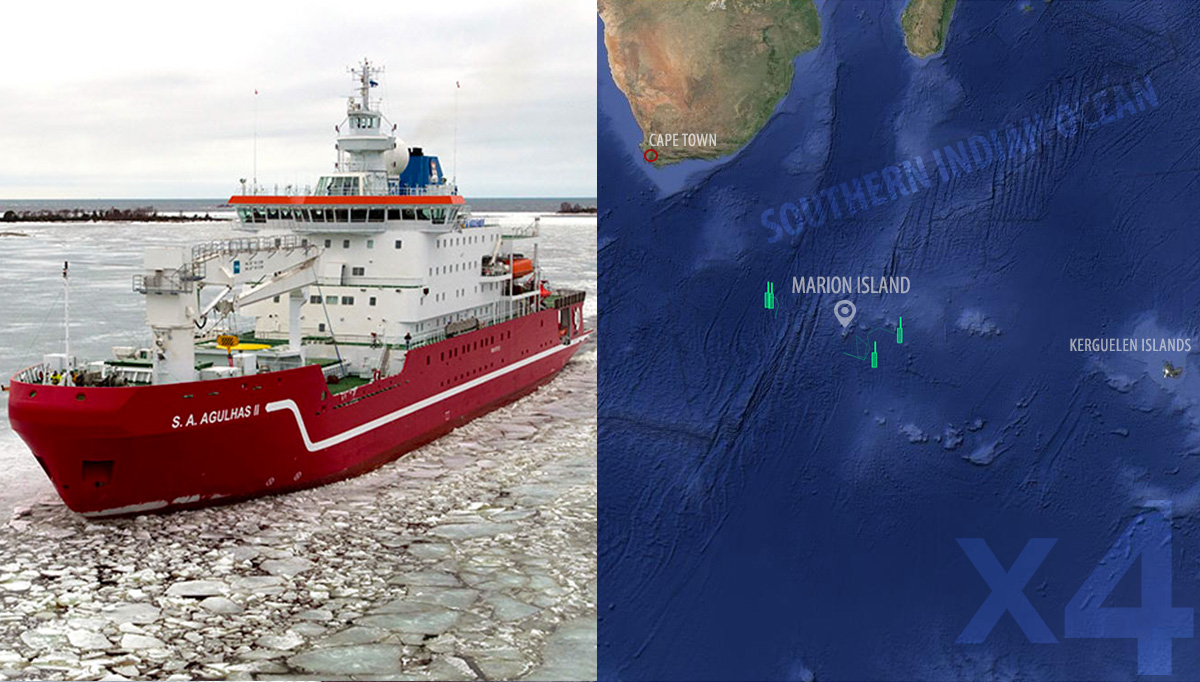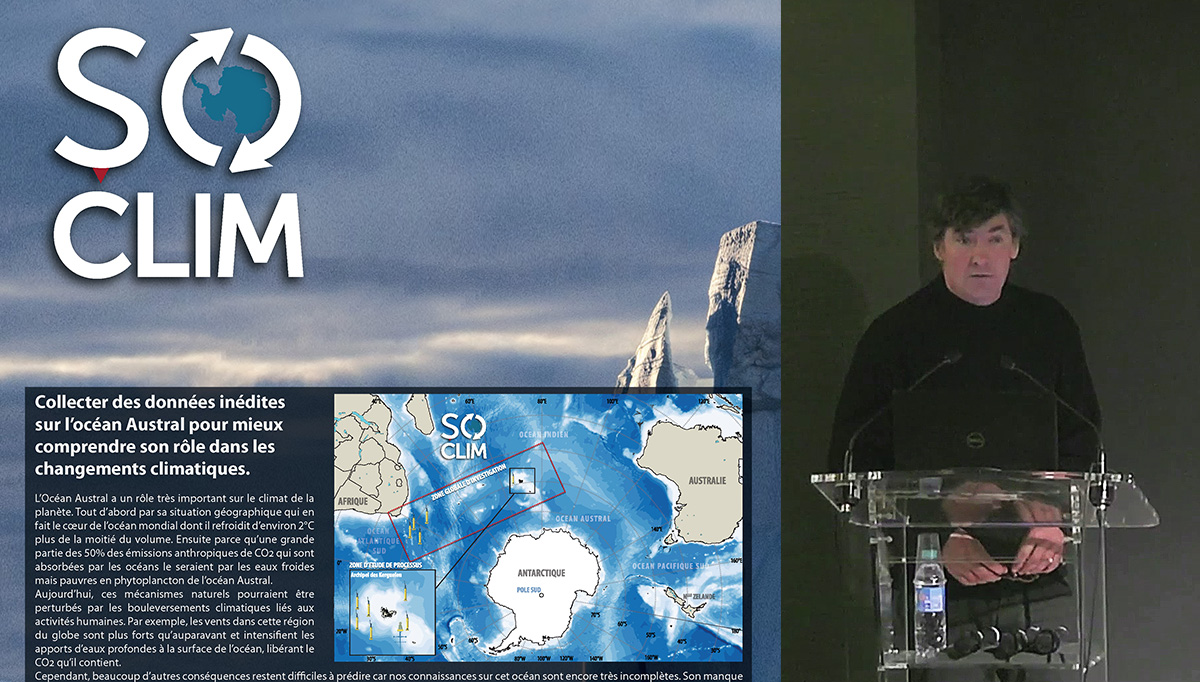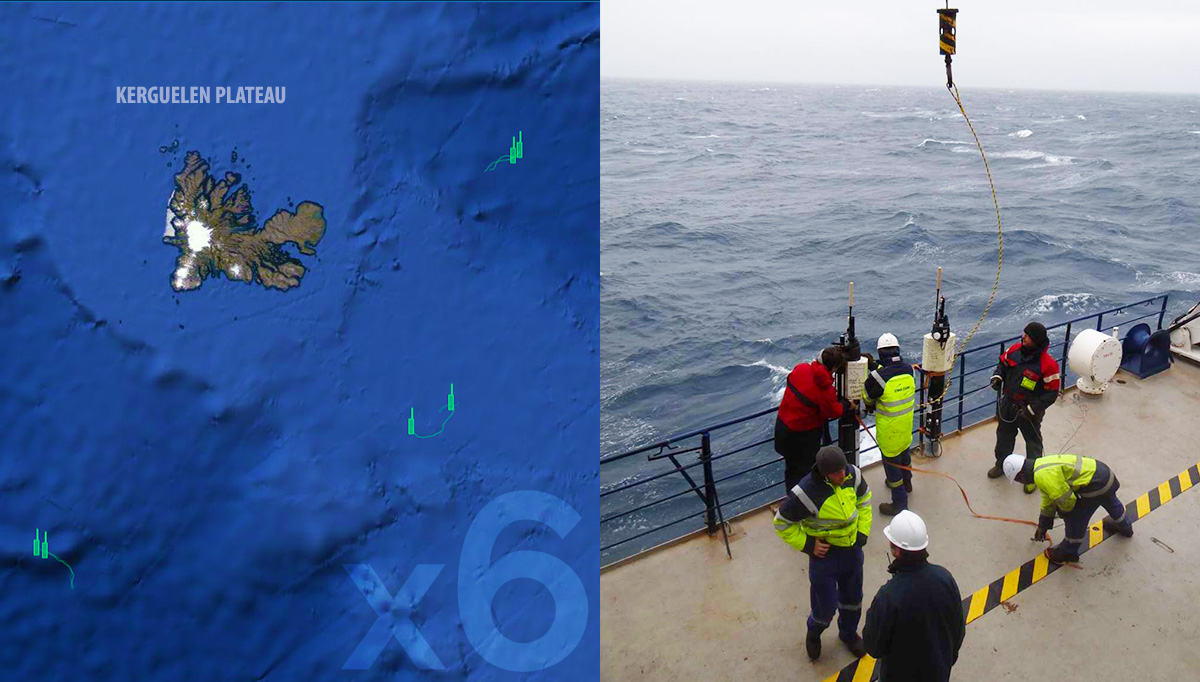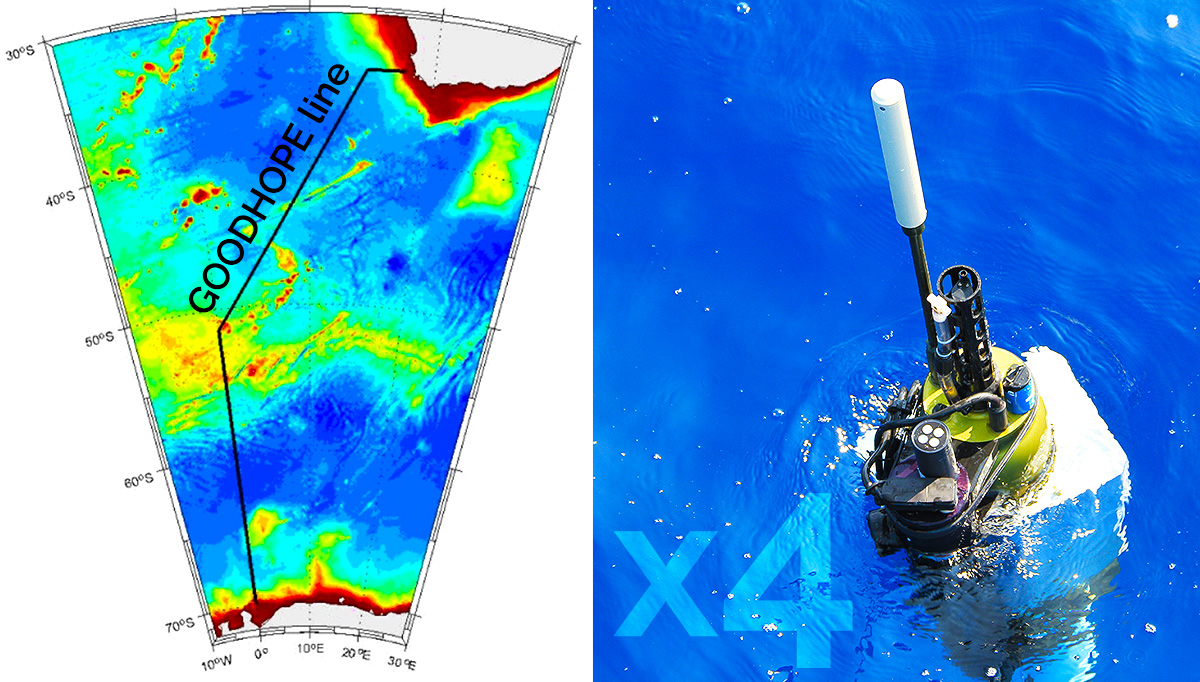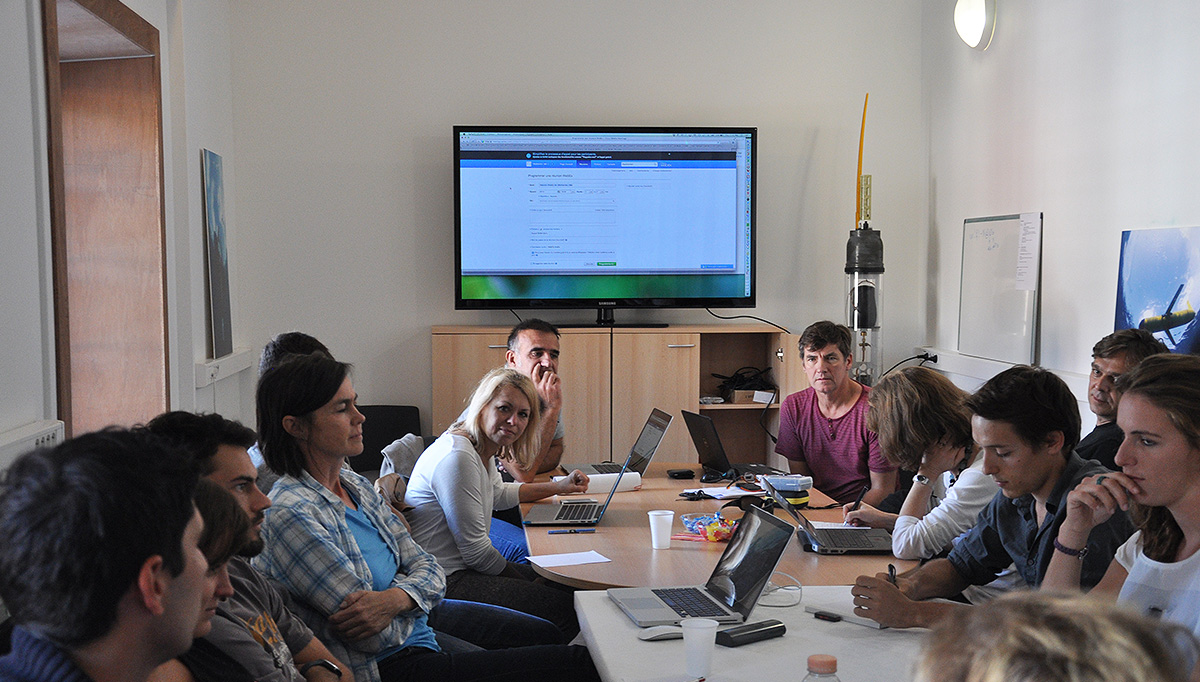RESTRICTED ACCESS
News
-
18SEP2017
SOCLIM 2017 Progress Meeting
Carolyn ScheurleThree years after the kick-off, the SOCLIM team met once again at the Observatoire Océanologique in Villefranche-sur-Mer for its second annual meeting (18th and 19th of September 2017).
Stephane Blain, principal investigator, opened the meeting and recapitulated the main objectives of the four work packages. Once more, he pointed out the unique possibilities that the project has unfolded in order to further develop technologies and work on specific SOCLIM-related scientific aspects. Both are important components for improving our knowledge about the Southern Ocean.
The two days were dedicated to presentations highlighting ongoing research and current outreach activities. The initial objectives of the project have been dealt with by addressing various spatial and temporal scales, parameters and mechanisms, by presenting the diverse data collected either autonomously and/or aboard the ship during the SOCLIM cruise, by analysing plankton communities and studying topics such as current patterns, variability and trends and by communicating and reaching out.
In an interactive manner, first results were discussed and feedback was proposed. The team also addressed questions that are still open and attempted preliminary interpretations. Based on these exchanges, a road map was set up for the upcoming year.
-
01JUN2017
Southern Ocean Mission - Webseries
Carolyn ScheurleDiscover the SOCLIM mission and main scientific issues in a webseries and link to universcience.tv
-
23MAY2017
Southern Ocean Mission - Exhibition
Carolyn ScheurleDiscover the SOCLIM mission and main scientific issues during a visit of the exhibition at the Cité des sciences et de l'industrie
-
06APR2017
The RAS (Remote Auto Sampler) mooring deployed during the SOCLIM cruise, in October 2016, has been recovered!
Juila UitzIn last October, a RAS (Remote Auto Sampler) mooring had been deployed in the central part of the Kerguelen Plateau, where the waters are naturally enriched in iron leading to enhanced phytoplankton biomass compared to surrounding waters...
Four SOCLIM team members, Stephane Blain, Ingrid Obernosterer, Olivier Crispi and Xavier Morin, are currently onboard the vessel Marion Dufresne and have just recovered the RAS. The samples and the in-situ data collected by this mooring over spring and summer will be brought back to the lab for analysis and interpretation. They will reveal the seasonal dynamics of the biogeochemical properties in the surface layer of this special oceanic system.
-
04APR2017
Monaco ocean week - a week of interaction and mobilisation for ocean conservation
Carolyn ScheurleFrom 30 March to 4 April, more than 30 events have been organized in various symbolic venues of the Principality of Monaco. These events brought together local and international experts, the scientific community, the voluntary sector and public authorities to share their experiences and reflect on marine conservation and blue economy sustainable development ...
Workshops, symposiums, seminars, exhibitions, documentary film screenings and public awareness events were held in venues such as the Oceanographic Museum, the Monaco Yacht Club, the International Hydrographic Organization’s head office and Stars’N’Bars. Within this context, the co-principal investigator of the SOCLIM project Hervé Claustre, his collaborator Jean-Pierre Gattuso and the “mon ocean & moi” team proposed several events to reach out to the wider public:
- 1/ In a conference-style and focusing on the Southern Ocean, Hervé Claustre talked about ongoing research and robotic observations of the ocean in the context of climate change.
- 2/ Jean-Pierre Gattuso spoke about climate change and the oceans and particularly addressed in his oral presentation possible consequences and solutions.
- 3/ The “mon ocean & moi” team proposed a complementary communication and hands-on activities centered on ocean observation by profiling floats and ocean acidification.
-
15DEC2016
Southern Ocean plankton from the SOCLIM cruise
Mathieu RembauvilleSamples for microplankton diversity taken during the SOCLIM cruise are being analysed under a microscope. ...
The cruise described a latitudinal transect from the warm subtropical waters to the cold Antarctic waters, providing the opportunity to observe an important diversity of size and shapes. Species are enumerated, identified, and images are acquired before numerous morphometric measurements are performed on the micrographs. The biovolume of plankton communities can be derived from these measurements combined with shape-specific equations.... This classical, time-consuming technique remains the only one able to provide plankton biovolume with a sufficient taxonomic resolution. It is then compared to the optical signal reported by modern optical tools that recorded the water optical signature during the SOCLIM cruise. Understanding the optical signatures of different plankton communities will be of great interest in order to interpret the numerous optical data reported by the floats deployed in the Southern Ocean.
-
03NOV2016
SOCLIM team has traveled the Southern Indian Ocean
Julia UitzDuring 28 days in October, the SOCLIM team has traveled the Southern Indian Ocean onboard R/V Marion Dufresne! ...
On October 6, 2016, the vessel Marion Dufresne left the coast of La Reunion Island and head towards the Kerguelen Archipelago. About a month, 15 hydrocast stations, 14 deployments of moorings and profiling floats, and 11 380 kilometers later, the SOCLIM team came back to La Reunion where the Marion Dufresne was demobilized. Now will come the time of samples and data analysis... Relive the SOCLIM cruise through the journal developed by Universcience All the videos may also be found on our SOCLIM Vimeo channel
-
17OCT2016
SOCLIM project @ the Science Festival 2016
Carolyn ScheurleIn mid-October, the yearly French Science Festival took place. On the weekend from Friday 14th to Sunday 16th, ...
and though the weather conditions were not favorable, more than 1000 people came to visit the marine station in Villefranche-sur-mer. This year, the team presented the SOCLIM project on a booth to a wider public and centered its presentations on the topic of the "Island effect" and the ongoing mission. Pictures of the departure of the R/V Marion Dufresne and videos such as the first series of the logbook “En direct de l’océan Austral” (online report @science actualités.fr) took the visitors aboard. Interested about the Austral Ocean as well as various aspects of the project, they could find out more thanks to complementary projections, explications and with hands-on activities.
-
06OCT2016
Live from the Southern Ocean
Carolyn ScheurleThroughout the month of October, follow from day to day the scientific expedition SOCLIM aboard the R/V Marion Dufresne, where two reporters embarked, Yseult Berger and Julien Boulanger...
Mission objective: to better understand the role of the ocean in a changing climate. Discover the mission on the BNP-Paribas Foundation website
-
20JUN2016
Final floats checking before departure to La Réunion Island
Christophe Penkerc'hOn June the 10th, 8 SOCLIM floats were ready to embark on a very long trip...
It was a long process for the team of engineers from the Laboratoire d’Océanographie de Villefranche (Edouard Leymarie, Antoine Poteau and Christophe Penkerc’h) to prepare the 8 floats up to their departure from Villefranche via Brest on their way to La Réunion. The preparation started a year ago, when NKE, the manufacturer, delivered the floats. First we tested the floats in the deep pool of Ifremer (Brest) in order to check the navigation. Then, we shipped them to the Villefranche Lab for additional tests and preparation.
Two kinds of floats have been prepared:
- Six Bio-Argo floats to which Antoine added an oxygen sensor to the initial payload. Then he programed the mission of the floats for the Southern Ocean. It takes an expert eye to set a dozen of parameters without reading the documentation!
- Two ProIce floats, similar to Bio-Argo but with ice detection capability.
For these, we started by doing the internal cabling between the electronic boards and the connections to the sensors. This was a thorough, time-consuming work! Then we attached all the sensors to the floats, checking at every step that the communication was working properly. The following step was to adjust the weight of the floats so they have perfect buoyancy. Finally, after we programmed the floats mission, we ran a test deployment approximately 2 miles off the Villefranche coast during a warm day of May. It may be the warmest temperatures these floats will ever measure during their life! The week before, we did a last check-up of the floats, which consisted in simulating a real deployment. Being confident that the floats were ready to navigate the harsh southern waters, we put them in their transport boxes, ready to be shipped.
As a third kind of floats being deployed during the cruise, two ProVal floats are being prepared and will be ready to leave by air in September ...
-
15JUN2016
The SOCLIM team is getting ready for the cruise
Julia UitzAll the equipment for the cruise has been shipped! ...
The SOCLIM cruise scheduled in October 2016 has kept the team very busy over the past few months…Preparing for the cruise has involved not only ordering equipment and supplies, but also testing sensors to be deployed in the field, and packing and shipping all necessary gear. The crates have been picked up in the three labs participating to the cruise in mid-June and shipped to IPEV (Brest). From there they will travel by sea to La Reunion Island and delivered to R/V Marion Dufresne in October.
-
1MAR2016
SOCLIM at the Ocean Sciences Meeting 2016
Carolyn ScheurleIn late February, the biannual Ocean Sciences Meeting took place in New Orleans/USA ...
Members of the SOCLIM team presented their work within the project to the international audience and exchanged on methods and first findings with specialists in the respective fields.
From the scientific perspective, contributions particularly addressed the following overarching topics including engineering aspects:
- Biogeochemistry and Nutrients - How Do the Carbon Pumps Pump?
- High Latitude Environments - Variability in Southern Ocean Productivity over Different Timescales
- Physical Oceanography/Ocean Circulation - Mesoscale and Submesoscale Processes: Characterization, Dynamics, and Representation
- Ocean Observing and Data Management - Autonomous Observations of Coupled Physical-Biogeochemical Properties and Processes in the Open Ocean
- Instrumentation & Sensing Technologies.
Moreover, the team contributed to the Education and Outreach part by proposing a session on Novel and Creative Outreach Methods and Models as well as several presentations on the mon océan & moi program.
The dense program that joined plenaries, booths and exhibitions together with sessions that mostly combined oral and poster presentations nourished the many discussions.
-
26NOV2015
SOCLIM 2015 Progress Meeting
Julia UitzThe first SOCLIM annual progress meeting was held in Banyuls on November 25–26, 2015...
The meeting was largely dedicated to the preparation of the next SOCLIM cruise that will take place in October 2016 on-board R/V Marion Dufresne.
This cruise represents an important milestone in the SOCLIM project because it will permit the deployment of 6 Bio-Argo profiling floats, 2 ProVal floats and 4 moorings. In addition, the scientists plan to conduct a series of biogeochemical and bio-optical measurements along the ship’s track, which will be extremely complementary to the in-situ instrumentation.
The meeting also aimed to provide updates on ongoing scientific studies related to biogeochemical fluxes in the vicinity of Kerguelen Islands, bio-regionalization of the Southern Ocean, and detection of meso-scale structures. The presentations and fruitful discussions have opened new paths for collaborations, especially among PhD students and postdocs from the different labs involved in SOCLIM.
Finally the meeting was an opportunity for reporting on past year’s outreach activities developed in the context of SOCLIM - such as the crowd-funding “66° Sentinels of the Polar Ocean” project, interactions with school children involved in the "adopt a float" initiative and the annual open door event “Fête de la Science” - and for setting the direction for 2016.
-
15OCT2015
SOCLIM promotes a crowdfunding operation
Carolyn ScheurleSOCLIM promotes a crowdfunding operation to initiate the development of observations in polar environments. ...
The team of the Laboratoire d’Océanographie de Villefranche-sur-mer would like to acquire “Hi-tech” profiling floats that would be able to drift under the ice and allow to share the measurements and maybe new discoveries with you and a larger public.
For more information on the project "66° Sentinels of the Polar Ocean" go to page: http://www.ulule.com/66-sentinelles-ocean-polaire/
We rely on both your donations to help us develop this initiative as well as your support by relaying this call to friends and family, colleagues or networks. In advance, thank you for your commitment in this adventure.
-
10OCT2015
SOCLIM project @ the French Science Festival
Carolyn ScheurleIn October, the French Science Festival represented for the marine stations in Banyuls and Villefranche-sur-Mer another opportunity to present the SOCLIM project to a wider public. ...
About 1200 people including school children and their teachers visited the stands on which the team proposed thematic posters, interactive web-based presentations and hands-on experiments.
The visitors were very interested in learning more about the specific environment of the Austral Ocean as well as about the various aspects of the project.
Their positive feedback encourages all SOCLIM collaborators in continuing the chosen education & outreach pathway and certainly stimulates new actions: Thanks!
-
03APR2015
Third deployment of remOcean floats in the Austral Ocean: Marions Island cruise
Hervé ClaustreFour remOcean floats have been deployed as part of the Marions Island cruise onboard South African Research Vessel Agulhas by our south africans colleagues...
In particular two lots of floats have been deployed, one in the vicinity of Marion Island and the other, on the way back to Cape Town. -
29JAN2015
SOCLIM : Press conference and BNP collaborator conference
Stéphane BlainStéphane Blain, Hervé Claustre and Sabrina Speich present the SOCLIM project @ PARIS, FRANCE
. -
28JAN2015
Second deployment of remOcean floats in the Austral Ocean: Kerguelen Plateau
Hervé ClaustreSix remOcean floats have been deployed as part of the OISO cruise onboard Research Vessel Marion Dufresne II.
In particular two lots of floats will be deployed on each side (East and West) of Kerguel becuase these area are know to be highly contsrated with respect to their phytoplankton productivity. -
10DEC2014
First deployment of remOcean floats in the Austral Ocean
Hervé ClaustreFour remOcean floats have been deployed as part of the South African Agulhas II cruise along the so-called GOODHOPE line
The collected data will contribute to the monitoring of bio-geochemical and bio-optical properties in order to adress the impact of Austral Ocean, a particularly unexplored oceanic area, on the global ocean carbon sink. -
30OCT2014
Kick-off meeting
Carolyn ScheurleThe Southern Ocean and Climate - SOCLIM project kick-off meeting took place in Villefranche-sur-Mer in late October (2014). The principal investigators, Stéphane Blain, Sabrina Speich and Hervé Claustre welcomed the participants. After their introductory talks, the two-day meeting was dedicated to detail the work plan, to the mapping of collaborations and to the preparation of upcoming activities. ...
The team’s scientific discussions were deepened by exchanges via the web with national and international collaborators. During the meeting, the involvement of early career scientists, PhDs and postdocs has been favored. Also, the active participation of the representative of the BNP Paribas foundation was particularly welcome.Furthermore, the meeting marked a starting point to launch specific outreach activities and to prepare for the upcoming press conference in Paris.



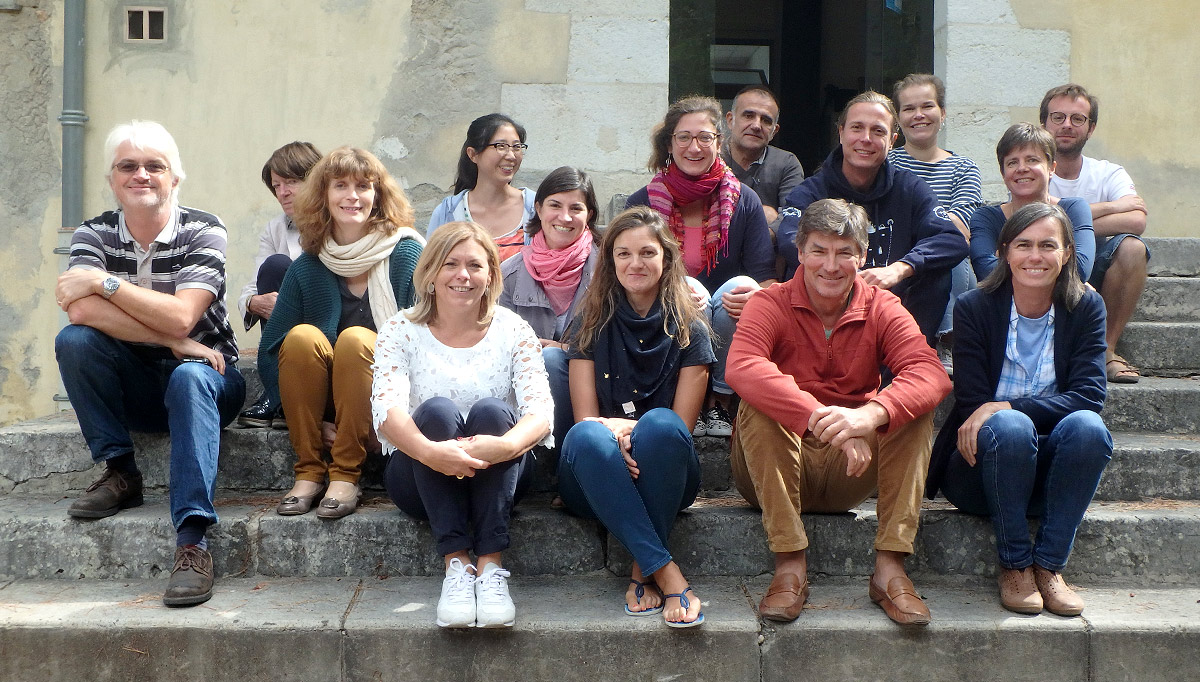
 2017
2017